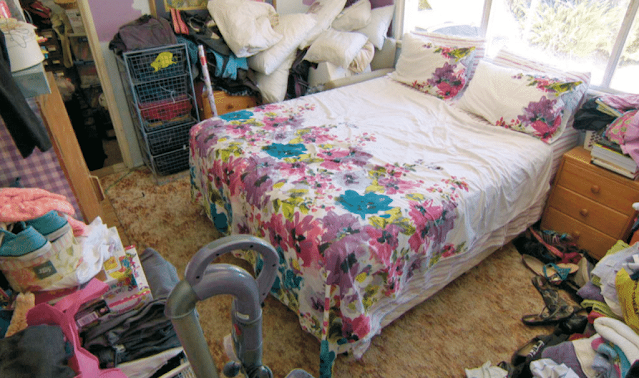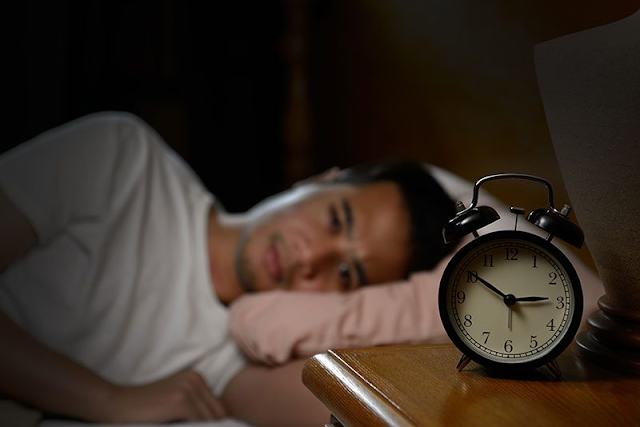From hot water bottles to weighted blankets, here are some expert sleep tips to help you drift off
Nothing is more aggravating than being absolutely fatigued, climbing into bed, and then being unable to fall asleep. Then, to add insult to injury, 'trying' extra hard to fall asleep and failing miserably.
According to Maryanne Taylor, owner of sleep consultant The Sleep Works, this is a relatively frequent sleep disorder called as sleep initiation.
"It might be due to a variety of swirling thoughts: processing ideas, fears, to-do lists," Taylor notes, "which can wind us up instead of winding us down for sleep."
"Sleep anxiety" is defined as "worry over not being able to fall asleep."
"Sleep stress" refers to concern over not being able to get asleep, which can aggravate the problem, as well as general stress and anxiety: the more nervous and agitated we are, the less likely we are to fall asleep quickly.
A lack of winding down before going to bed, as well as, as we all know, screen usage, might be contributing factors.
"Blue light from screens suppresses the creation of melatonin, our naturally occurring sleep hormone, making us feel less drowsy," Taylor explains.
We've all experienced the frustration of being unable to sleep and being tempted to go for our phones.
"It is no surprise that working long hours day in and day out hinders your sleep," Samantha Briscoe, lead clinical physiologist at London Bridge Sleep Centre, says.
"This is primarily due to the high amounts of stress that overworking puts your body under. Because of the amount of time spent gazing at a computer screen or not having enough time to unwind after a long day at work, chronic overworking might affect your sleep."
Does any of this sound familiar?
While leading a healthy lifestyle that promotes mental and physical well-being is excellent for helping us sleep better at night, we can't always control our circumstances.
But what if you could include a few easy strategies into your evening ritual that would make all the difference? Nothing to put you under more stress than you already are, but to make your relationship with sleep a little easier when you do fall asleep.
Taylor, Briscoe, and Tracy Hannigan, popularly known as Tracy The Sleep Coach and a UK member of the Society of Behavioural Sleep Medicine, have all offered advice.
A hot water bottle should be placed at your feet while you sleep
"If you have chilly feet, research suggests that keeping your feet warmer than the room temperature will help you fall asleep," Taylor says. "We know that our body temperature varies and redistributes heat from our core to our extremities during a sleep cycle."
She emphasizes that while it may not be a quick remedy, it will undoubtedly assist. "While a hot water bottle at your feet may not make you fall asleep, the heat from it may help open blood vessels, increasing blood flow and allowing for enhanced synthesis of melatonin, the sleep hormone."
If you opt to sleep with a hot water bottle at night, make sure it is properly secured and protected.
Purchase a weighted blanket
"Some individuals find weighted blankets really beneficial with their sleep," Hannigan adds. "People who are more worried, as well as people who used to sleep on their stomachs but now had to sleep on their backs for whatever reason, find the weight and pressure relaxing."
"These blankets won't 'cure insomnia,' but they can make it easier for otherwise good sleepers who are prone to tossing and turning as they fall asleep." Expert advice: Some individuals find them excessively hot, so try sleeping with the window open."
Weighted blankets for adults should be roughly 10% of your body weight. Healthy ways to get ready for nighttime
The proper method to wind down
We should give ourselves permission to establish a 'bedtime ritual,' according to Taylor, because they aren't only for kids.
"Calming lead up to bedtime, ideally without devices. Try relaxing hobbies that will not elevate stress levels - audiobooks, reading, music, mindful coloring," she recommends.
Screens, as enticing as they are, are not recommended during the hours leading up to night, as we all know. "Blue light from screens suppresses the creation of melatonin, our naturally occurring sleep hormone, making us feel less drowsy," she explains.
"A warm bath a couple of hours before bed is soothing and relaxing and a nice wind-down activity," Hannigan says. "It can also help create, through the slow cooling of the body, a nice temperature drop that is necessary to fall asleep and stay asleep. When we sleep, our body cools due to the lack of muscle activity, so the slow cooling'mimics' this drop in body temperature."
"Don't take a hot bath or too close to sleep," she says, "since the body won't have enough time to cool down."
De-clutter your space
While this may not be the first thing that comes to mind while attempting to go asleep at night, Hannigan describes it as a "unexpected one," and it is more significant than you would believe.
"When a person enters into their room and is instantly confronted with a visual reminder of all the things they need to do and sort, our arousal system is activated at precisely the wrong time," she explains. "Because our arousal system is an innate safety function, we can't go asleep if we don't feel comfortable, therefore having a neat sleeping area is one everyday 'trick' that can assist."
Make a note of it
Bed, which is supposed to be the location where we feel the most peaceful, is frequently the spot where we try to solve all of life's problems in our heads. It's not a smart idea to switch off.
Taylor recommends putting pen to paper to help prevent this. "Write a 'Thoughts Diary' and 'To Do list' in the evening as a manner of processing rather than waiting until you're laying in bed at night," says the author.
Make time for concern
Hannigan elaborates on the preceding point, adding that this technique is "different from writing things down to get them out of your thoughts," and that devoted worry time is "a simple and straightforward thing to do during the day to help you sleep at night."
She clarifies, "If you're worried about something and can't do something about it right away, write it down, repeat as needed, and then spend 15 minutes each day 'worrying' about it.
"By then, our perspective on the subject will have changed, but more importantly, we will have trained our mental muscles around the idea that our thoughts can bother us, but we can manage them rather than allowing them to manage us, which can help people avoid going to bed and being bombarded by their worries."
(Make an effort to) conform to a regular sleeping schedule.
It's not simply 'how' we attempt to sleep; it's also 'when' that has a huge influence on how soon we fall asleep.
"Teaching your body to get up and go to sleep at the same time each day is one of the most crucial parts of a good sleep habit," Briscoe explains.
"Going to bed at various times can disrupt your body's sleep-wake cycle, also known as our circadian rhythm, making it harder for our bodies to recognize when it's time for bed," she continues.
Consistency is also recommended by Hannigan, but only in the morning. "If someone is having trouble sleeping, waking up at a regular time might help them develop a constant sleep drive, which makes it easier to fall asleep."
If going to bed at the same time every night isn't working for you, she suggests an alternative: 'Avoid going to bed until you're actually weary, and avoid 'chasing sleep' by going to bed early.' A strong relationship between drowsiness and the bed that isn't hampered by excessive wake time or tossing and turning in bed is a very dependable evidence-based way to improving sleep "However, we may presume that this excludes any ungodly hours.
Use the day as a tool for prevention
"A healthy lifestyle, caffeine reduction, and regular exercise can all benefit our sleep quality," Briscoe adds.
"The timing of caffeine and alcohol might impact our ability to go asleep," Taylor adds, noting that "caffeine lingers in our system for a long period - half life of six hours, so a late afternoon coffee or tea can disrupt bedtime."
Allow youngsters to assist you
If you have children, ensuring that they go asleep peacefully is half the fight, as this will help you fall asleep happily as well.
According to Taylor, children, like adults, require a consistent and planned sleep routine, including screen-free time in the hours leading up to bedtime and the avoidance of sugary meals in the evening to minimize blood sugar rises.
Some of her best advice is as follows: "If you need the presence of a parent in the room to fall asleep, gradually wean yourself off of it, since the distraction can frequently be the source of the problem.
"Make sure the bedroom isn't too bright because melatonin is only created in a dark atmosphere, and too light can prevent this."
While pursuing a healthy lifestyle or developing good sleep habits might aid in our ability to fall asleep and improve our sleep quality, Briscoe points out that "this can look different for everyone, so it's vital to figure out what works for you and stick to it."
"Try not to overwhelm yourself with too many adjustments to your night-time routine at once," she says. "Start with little modifications to work yourself toward healthy sleep habits."
#SleepingDisorder #GoodSleep #BetterSleep #CantSleep
SOURCE: yahoo
What do you think of this blog? Write down at the COMMENT section below.









No comments:
Post a Comment